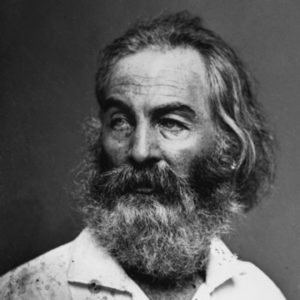We have decided to create the most comprehensive English Summary that will help students with learning and understanding.
The Voice of The Rain Poem Summary in English by Walt Whitman
The Voice of The Rain Poem by Walt Whitman Poet
| Name | Walt Whitman |
| Born | 31 May 1819, West Hills, New York, United States |
| Died | 26 March 1892, Camden, New Jersey, United States |
| Poems | Leaves of Grass, Song of Myself, O Captain! My Captain! |
| Awards | Golden Kite Award for Picture Book Illustration |

The Voice of The Rain Poem Summary in English
The poet gazed at the gentle spell of rain and asked of the rain who it was. Much to the surprise of the poet, it answered him. The rain said that it is the poetry of the earth. It is never-ending. It is intangible as it rises out of the land, from the endless sea before it ascends towards heaven. There it changes its form, yet, in essence, it is the same. It once again comes down to earth to refresh the dry earth, to bathe tiny particles and settle the dust-layers of the world. As it falls on the earth, the seeds that hitherto lay dormant and lifeless, spring to life. The rain says that the earth is its creator and it gives back life to it. Rain makes the globe wholesome and beautifies it.
Thus, the rain takes a full circle and comes back to its creator, just like the song that originates from its birthplace and after completion, travels around the earth, whether one takes heed of it or not, and then comes back to its place of origin with love.
The Voice of The Rain Poem Summary Questions and Answers
1. And who art thou? said I to the soft-falling shower,
Which, strange to tell, gave me an answer, as here translated:
I am the Poem of Earth, said the voice of the rain,
a. Who are the two people in conversation?
Answer:
The poet and the rain are the two people in conversation.
b. What did the poet ask?
Answer:
The poet asked the rain who it was.
c. Why was it ‘strange to tell’?
Answer:
The rain replied to the poet’s query and gave an extraordinary answer.
d. What does the rain call itself? Why?
Answer:
The rain calls itself the rhyme of the earth. Like a song, it travels back to its source.
2. Eternal I rise impalpable out of the land and the bottomless sea,
Upward to heaven, whence, vaguely form’d, altogether
changed, and yet the same,
I descend to lave the droughts, atomies, dust-layers of the globe,
And all that in them without me were seeds only, latent, unborn;
And forever, by day and night, I give back life to my own origin,
And make pure and beautify it,
a. Where does the rain rise from?
Answer:
The rain rises from the land and the sea.
b. Why is it impalpable?
Answer:
It is intangible—in the form of vapour.
c. Where does it rise to?
Answer:
It rises upward towards heaven.
d. What happens there?
Answer:
The cloud changes its form.
e. What impact does it have on earth?
Answer:
The rain, once again, comes down to earth to wash away paucity, to bathe tiny particles and the dust- layers of the world.
f. What is the effect on seeds?
Answer:
The rain puts life into the seeds; helps them germinate.
g. What is the impact on earth?
Answer:
The rain purifies and beautifies the earth.
h. How does the rain complete its cycle?
Answer:
The rain sets out from the land; goes heavenwards; and comes back again to the land.
3. (For song, issuing from its birth-place, after fulfilment, wandering,
Reck’d or unreck’d, duly with love returns.)
a. What does the song do?
Answer:
The song sets out, wanders, completes its journey and comes back.
b. How is it like the rain?
Answer:
It comes back after a full cycle and so is like the rain.
c. What do the words ‘reck’d or unreck’d’ suggest?
Answer:
Cared or uncared.
d. How does a song seek its fulfilment?
Answer:
A song seeks its fulfilment by roaming; travelling places before it returns.